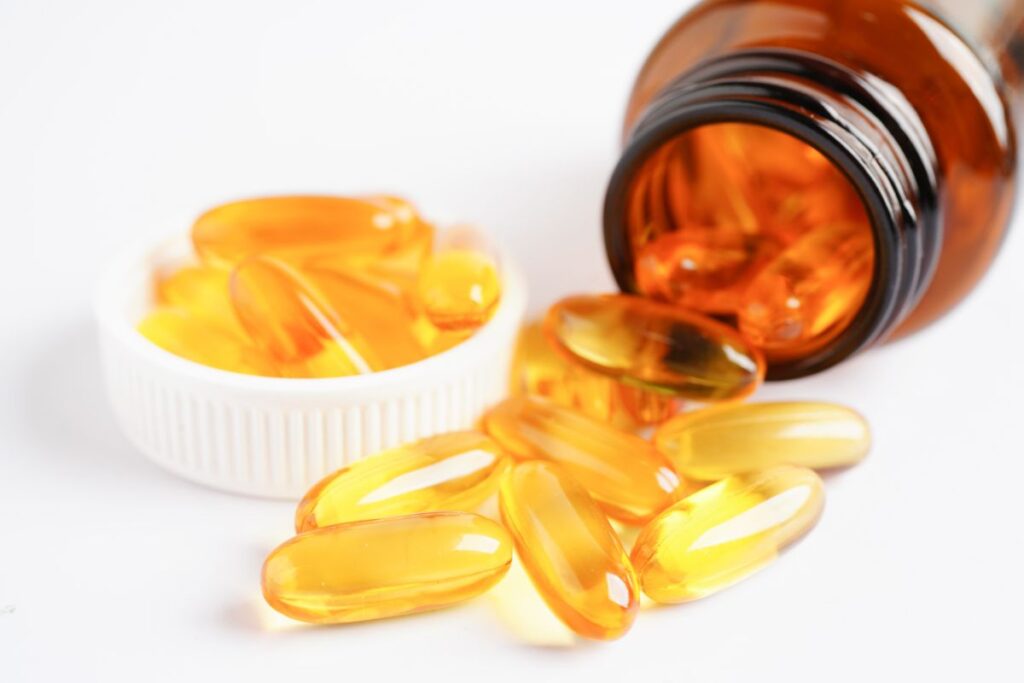Omega-3
Author:
Unlock your full potential by engaging with our experts and community! Have questions about your fitness journey or looking for expert advice on weightlifting techniques? Don’t hesitate — leave a comment below and Sergii Putsov will provide a personalized answer and insights to help you reach your goals.
Torokhtiy is reader-supported. Some links are affiliate links, and we may earn a commission at no extra cost to you. See our disclosure page for details.

Nowadays, in order to be a healthy athlete, very often you have to resort to the use of supplements in the form of dietary supplements or vitamin complexes in addition to proper and balanced nutrition. There’s an easy solution. The food we find in stores is being heavily processed and does not always contain the optimal amount of nutrients. Regarding the energy consumption of weightlifters and the increased use of macro and microelements, I would like to focus on useful additives used throughout the world.
Today we’ll review essential polyunsaturated fatty acids (EFAs).
This is the class of fatty acids (omega-3 = omega-3 fatty acid) we must get from our food, because they are not formed naturally by the human body.
These are:
You may like it:
- α-Linolenic acid (ALA)
- Docosahexaenoic acid (DHA)
- Eicosapentaenoic acid (EPA)
- Stearidonic acid
- Docosopentaenoic acid

Our brain is 60% fatty acids (sphingolipid), phospholipids, and etc. Polyunsaturated fatty acids are there in our brains to protect our nerve cells from damaging factors, in particular free oxygen radicals that are toxic for the nervous system. They take an important role in fat and carbohydrate metabolism, preventing the formation and deposition of “bad cholesterol” in the blood vessels, providing a special function for the athlete – increasing the sensitivity to insulin, reducing the formation of blood clots and increasing stamina. It should be mentioned that polyunsaturated fatty acids serve as a substrate for the formation of sex hormones, in particular testosterone. With increased physical exertion, the body constantly experiences inflammatory processes at the cellular level, which Omega-3 fatty acids successfully cope with.
It’s important to note that we get omega-6 fatty acid from certain vegetables, but Omega-3 (namely, dokosaheksaenovoy (DHA) and eikosopentaenovoy (EPA)) only comes from fish – sardines, mackerel, salmon, Atlantic herring, and so on.
In the absence of fresh fish, therefore, it is recommended to consume fish oil in the form of dietary supplements (capsules) on daily basis. Dosage varies from 1-3 grams per day, depending on your physical exertion and physiology. This supplement is an indispensable additional nutrient to a balanced diet of an athlete.
You might be interested in:
Why Trust Us?
With over 20 years in Olympic weightlifting, strength training, nutrition coaching, and general fitness our team does its best to provide the audience with ultimate support and meet the needs and requirements of advanced athletes and professional lifters, as well as people who strive to open new opportunities and develop their physical capabilities with us.
By trusting the recommendations of our certified experts in coaching, nutrition, and sports training programming, as well as scientific consultants, and physiotherapists, we provide you with thorough, well-considered, and scientifically proven content. All the information given in the articles concerning workout programming, separate exercises, and athletic performance, in general, is based on verified data.
The product testing process is described in more detail here.
Author: Sergii Putsov
Head of Sport Science, PhD
Best Results: Snatch – 165 kg,
C&J – 200 kg
Sergii Putsov, Ph.D., is a former professional weightlifter and National team member, achieving multiple medals in the 94 kg weight category at national competitions. With a Master’s degree in “Olympic & Professional Sport Training” and a Sport Science Ph.D. from the International Olympic Academy, Greece, Sergii now leads as the Head of Sport Science. He specializes in designing training programs, writing insightful blog articles, providing live commentary at international weightlifting events, and conducting educational seminars worldwide alongside Olympic weightlifting expert Oleksiy Torokhtiy.




Still have questions after reading our article? Unlock your full potential by engaging with our experts and community! Don’t hesitate — leave a comment below and Sergii Putsov will provide a personalized answer and insights to help you reach your goals.